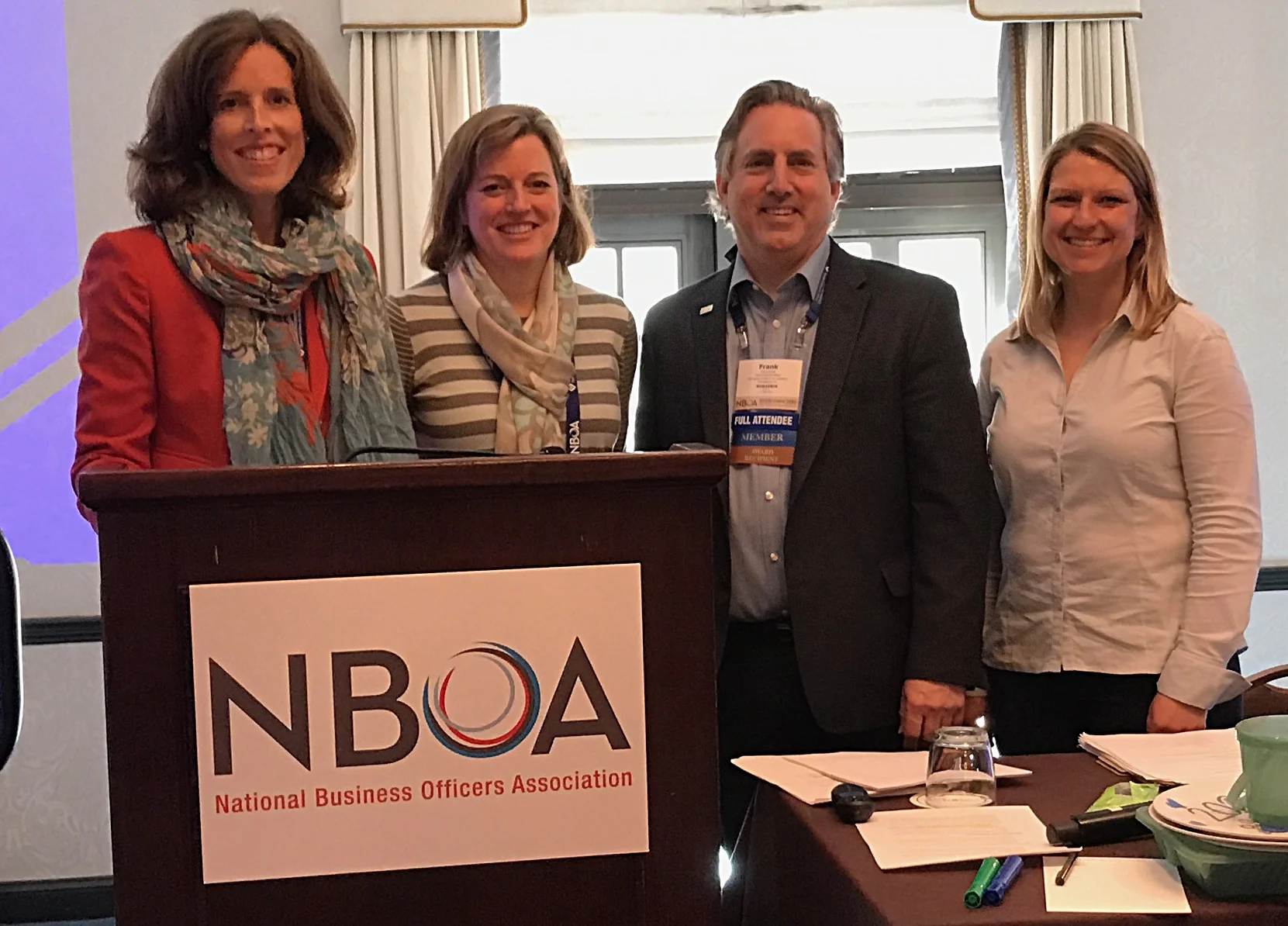On January 26, 2022, PAISBOA Sustainability Group members met virtually to discuss examples and benefits of getting students excited and thinking about sustainability within their classrooms.
Inspire Students with Hydroponic Kits
No-Idling Promotes Good Stewardship & Environmental Practices
That’s a Wrap: Eco-Friendly Tips for the Holidays
More Plants, Less Waste: How Our Diet Affects Climate Change
Did you know that Americans waste a staggering 40% of our food (NDRC, 2017 )? Food waste in landfills contributes to the release of methane, a powerful heat-trapping gas 21 times more harmful than carbon dioxide. Mary Ann Boyer and Nate Buchanan of Boyer Sudduth Environmental Consultants presented “A Diet for the Climate” at Drexel University’s Academy of Natural Sciences to outline ways to reduce food waste and the carbon footprint of our diets. This presentation was part of a climate panel event, which attracted 119 participants on November 16, 2021.
In their presentation, Boyer and Buchanan highlighted the climate impacts of methane emissions from food in landfills and provided tips to limit our food waste.
Figure 1: Tips to limit food waste and reduce your food footprint.
They then addressed the carbon emissions from a meat-heavy diet. The chart below shows the carbon emissions of various foods. Beef is the highest, followed by cheese, pork, poultry and fish.
Figure 2: Greenhouse Gas Emissions by Food Type per pound of edible weight.
“Shifting our food choices to eat ‘lower on the food chain,’ opting for less carbon intensive poultry or fish, can help reduce our emissions,” noted Boyer. “Eating a plant-forward diet is better for our health and the planet.”
Boyer and Buchanan then outlined tips to eat a plant-forward diet. “We’re not asking everyone to become vegetarians or vegans overnight, but that they consider eating more plants and less meat,” added Buchanan.
Figure 3: Tips for Eating a Plant-Forward Diet.
If you want to embrace a plant-forward diet, start small. Going one day a week without meat (like a “Meatless Monday”) or trying out a plant-based burger are some excellent first-steps to start eating plant-forward. It is critical to remember that every small dietary change can have a positive climate impact.
For more information, see these tips to reduce our food footprint. After Boyer and Buchanan’s presentation, Bob Ellis of the Climate Reality Project, presented on the state of the climate crisis. To view the full panel and presentations, click here.
Blog by Nate Buchanan, Haverford College ‘22, Sustainability Intern at Boyer Sudduth Environmental Consultants.
Learning Outside the Classroom: PAISBOA Sustainability Group Meets at Germantown Academy
OASIS’s Fall Meeting: “Creating a Culture of Hope”
On October 21, 2021, 41 participants joined virtually for OASIS’s Sustainability Group first fall meeting featuring guest speaker, Brian Dunbar, Executive Director of the Institute for the Built Environment and Professor Emeritus at Colorado State University. Dunbar’s theme “Creating a Culture of Hope” embodied two big ideas: Whole School Sustainability and Regenerative Future.
How to “Green” the Yellow School Bus
Your Blue Jeans Are Not Green
The fashion industry poses serious threats to the environment. In our blog article, we explore the consequences of the industry discussed in “Unraveled: The Life and Death of a Garment” by Maxine Bedat as she follows the life of an American icon, a pair of jeans and discuss new ways to make a difference
“Green” Your Coffee Station
2021 Grants to Green Your School
GDS Students Propose Reducing School Emissions with the Climate Footprint Challenge©
Georgetown Day School (GDS) Environmental Science students in CA Pilling’s class gained real-world experience this spring by studying their school’s carbon emissions. Students collected and analyzed data pertaining to three areas of the school: facilities (energy use), transportation, and waste.
Sustainability Survey for PAISBOA Schools Launched This Spring
Wondering how your school compares with others around environmental sustainability?
Boyer Sudduth Environmental Consultants created a short Sustainability Benchmarking Survey specifically for PAISBOA member schools and launched it this May. Mary Ann Boyer shared the survey results at the May 19th PAISBOA Sustainability Virtual Meeting.
Micro Forests: Macro Changes Toward Reducing Climate Change
How Tree Equity Can Fight Racial Inequality
Trees play an integral role in promoting community health. Sadly, in the United States, trees are not equitably distributed among neighborhoods leaving certain groups of people lacking the environmental benefits that trees make available. Tree Equity is the solution to ensuring that everyone, regardless of income or race, has access to the benefits that trees supply to our lives.
CREATING A SUSTAINABILITY BENCHMARKING SURVEY
What Does Our Diet Have to Do With Climate Change?
What does our diet have to do with climate change? On Saturday, February 20th, Farm Arts Collective held its first Farm Days Workshops of 2021. More than 35 people attended the event which featured a presentation on “More Plants, Less Waste: How Our Diet Affects Climate Change” from Boyer Sudduth as well as a presentation on the climate crisis from The Climate Reality Project Chapter of Philadelphia and Southeastern, PA.
Are Americans Concerned About Climate Change? Try the SASSY Survey
Green Schools: Building Sustainability in a New Reality
Indoor Air Quality: Guidelines for Philadelphia and Beyond
The past year has taught us all a lot about invisible threats. The COVID-19 virus, however, is only one of the many things that travels about unaware to us, which is why indoor air quality is an important subject to understand.
























